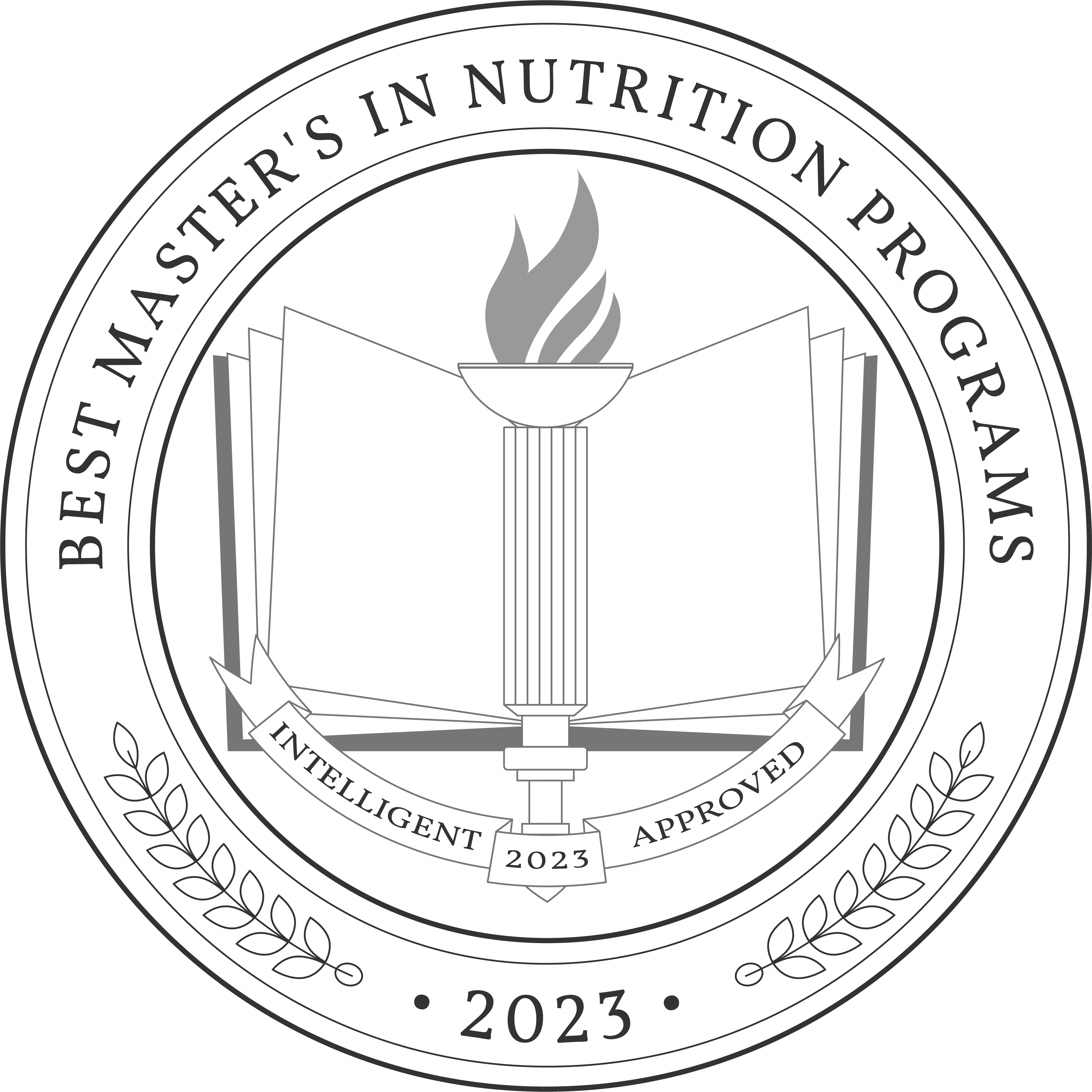Why This Matters
-
NUTRITIONISTS WRITE THEIR OWN TICKET
Most nutritionists work in hospitals or nursing facilities, but about one in 25 are self-employed. Build a successful business, or join forces with other healthcare professionals in a clinical setting.
-
JOB GROWTH FOR NUTRITIONISTS IS 8% THROUGH 2029
Nutritionists belong to a rapidly growing field with opportunities to work in a variety of settings. The United States will need 5,900 more nutritionists by 2029.
-
EARN A MEDIAN INCOME OF $61,270 AS A NUTRITIONIST
The top 10% of nutritionists earn more than $87,000. With a median income above $60,000, they can increase their annual salary as they gain specialization in working with different populations.
Our Research
This list features graduate-level programs in nutrition that mostly award a Master of Science degree. These degree programs are often housed in a college of natural sciences or college of human sciences, and some are associated with a school’s nursing or public health program. Nutrition coursework is offered either online or in person.
Accreditation is an important aspect of any degree. In the field of nutrition and dietary science, the primary national accrediting body is the Accreditation Council for Education in Nutrition and Dietetics (ACEND). Other reputable accreditation entities are the Commission on Accreditation for Dietetics Education (CADE), the Higher Learning Commission (HLC), and the Academy of Nutrition and Dietetics (AND).
We evaluated each program on the basis of flexibility, faculty, course strength, cost, and reputation. Then we calculated the Intelligent Score for each program on a scale from 0 to 100. For a more extensive explanation, check out Our Ranking Methodology.
- 62 hours to write this article
- 206 universities and colleges we assessed
- 205 education programs we compared
The Top 50 Master’s in Nutrition Degree Programs

Discover More Options
What You Should Know About This Degree
At the undergraduate and graduate levels, nutrition and dietetics are often presented in the same curriculum. Similar degrees include a bachelor’s or master’s degree in health education or sports medicine. The master’s degree in nutrition differs from other programs in that it emphasizes the science and biology of food intake and teaches students how nutrition affects overall health.
When researching degree programs, look for accreditation from industry-specific entities, such as ACEND, CADE, and AND. Other respected accreditations are awarded from regional organizations. They include the Southern Association of Colleges and Schools Commission on Colleges (SACSCOC) and the Middle States Association of Colleges and Secondary Schools (MSACSS).
Demand for qualified nutritionists is expected to increase at a faster-than-average rate through 2029. Nutritionists have multiple options when it comes to work environments, including hospitals, nursing homes, outpatient clinics, and home health agencies. Some nutritionists partner with endocrinologists, pediatricians, and other medical specialists to provide nutritional counseling to clients.
Though not required, most nutritionists who plan to work with patients elect to pursue the Registered Dietician Nutritionist (RDN) credential. If you haven’t already earned this credential following your bachelor’s degree or are new to the field, you must earn 1,200 hours of supervision through an internship or your workplace to qualify in addition to meeting state-specific requirements.
What’s Next?
As you research master’s in nutrition programs, ask the following questions:
- Am I eligible for this program? Most master’s in nutrition degree programs require completion of a bachelor’s degree with a minimum undergraduate GPA and a minimum score on the Graduate Record Examinations (GRE). It’s strongly recommended that prospective students have a background in science, because a master’s in nutrition involves courses in chemistry, biology, and physiology.
- How long does it take to complete this online degree? Master’s degrees typically require a minimum of 30 credit hours to complete, which translates to about two years of full-time, graduate-level study. Some programs offer fast-track options for students preparing to enter medical school wherein the degree can be completed in about one year.
During your research, note whether the program’s coursework satisfies the requirements to become a Registered Dietician Nutritionist. If becoming an RDN is your goal, there may be another program offered by the same college or university that satisfies the requirements for licensure. Also note admission application requirements, admission and financial aid deadlines, and prerequisite undergraduate courses you might be missing.
To access as much aid as possible, complete the Free Application for Federal Student Aid (FAFSA) well before you begin applying to schools. If you’re employed, speak with your company’s human resources department about available tuition assistance. Also, contact the school’s financial aid and graduate studies departments to inquire about other ways to reduce your out-of-pocket costs, such as a graduate assistantship or school-specific scholarship.